Homeland Study Guide
Homeland is a sequel to Little Brother. It reprises the main character and some minor characters from Little Brother. The story occurs two years after the events in Little Brother. Marcus Yallow, 19, and his girlfriend, Ange, are attending Burning Man. Marcus meets Masha, a Department of Homeland Security agent whistleblower who gives him a decryption key for a cache of documents that reveal illegal government activities (warrantless searches, surveillance, detainment, interrogation and torture). Marcus returns to San Francisco and has to juggle a new job as webmaster for an independent state senate candidate with covertly releasing the stolen government documents.
To teachers:
Many high school English curricula include classic novels, teaching The Lord of the Flies or To Kill A Mockingbird. At the same time, teachers look for new, timely, yet ‘teachable’ novels that might engage their less enthusiastic or more adventurous students.
By ‘teachable,’ they mean books whose ideas and worldview are compelling, especially to teens, but whose literary qualities—plot, character, theme, style—are rich enough to allow students to learn and demonstrate their understanding and appreciation of literature.
May I suggest Homeland? Its characters are approachable, multidimensional and complex. Its plot and theme are timely, instructive and compelling.
Because I believe that Homeland should be in regular rotation in English courses, I have created a study guide to facilitate its study. I hope that you find that the guide supports your teaching and I think that you will agree that the novel is a worthy addition to your classroom.
Forgive me for stating the obvious, but there is neither time nor energy to complete all of the following activities. Select those that best suit the needs of your students and curricular goals.
To readers:
There are many reasons to read good books, pleasure being an obvious one. But books provide more than pleasure. They can comfort or provoke, instruct and inspire, challenge or affirm worldviews.
Homeland can do all of these, and while it might not require a study guide to accomplish them, you may find this guide enhances your understanding and enjoyment. I certainly hope so.
Something that distinguishes Cory Doctorow from W.O. Mitchell, J.D. Salinger and other popular high school authors is that he is alive and active. He has presence on the web (tweets, blogs, videos), meaning that students can study the author as well as the novel, enriching their understanding and appreciation.
The following activities are intended to help readers understand and enjoy Homeland. The first activities deal directly with the novel as a carefully-crafted piece of writing. The later activities address the novel’s cultural context and impact.
1. Setting the Stage
What might be the significance of starting the novel at Burning Man?
There are several YouTube videos on the Burning Man festival. Read the Burning Man Wikipedia entry and watch a video. Consider why it might be appropriate for Marcus to attend the festival and how his experiences of the festival events and culture influence the rest of the story.
thenextweb.com
“Attending Burning Man made me simultaneously one of the most photographed people on the planet and one of the least surveilled humans in the modern world.”
How could Marcus be “simultaneously one of the most photographed people on the planet and one of the least surveilled in the modern world?”
How might this opening line help readers anticipate the ironies and contradictions in the rest of the novel?
2. Descriptive Writing
One of Homeland’s strengths is its many uses of descriptive language, both of events and of feelings. Identify and assess examples of effective (and ineffective) description. Explain the reasons for your choices.
You may use the following examples or some of your own choosing.
“Now the incendiary charges went, in near-perfect synch, a blossom of fire that forced its way out between the Library’s columns, the fire’s tongues lashing at sizzling embers — fragments of paper, fragments of books — that chased high into the night’s sky. The heat of the blast made us all step back from one another, and embers rained out of the sky, winking out as they fell around us like ashen rain. The crowd moved like a slow-motion wave, edging its way out of the direction of the prevailing wind and the rain of fire. I smelled singed hair and fun fur and a tall man in a loincloth behind me smacked me between the shoulders, shouting, “You were on fire, sorry!” I gave him a friendly wave — it was getting too loud to shout any kind of words — and continued to work my way to the edge.”
“This crowd was nothing like that mob, but my internal organs didn’t seem to know that, and they did slow flip-flops in my abdomen, and my legs turned to jelly, and I found myself slowly sliding to the playa. There were tears pouring down my face, and I felt like I was floating above my body as Ange grabbed me under my armpits, struggling to get me to my feet as she spoke urgent, soothing words into my ears. People stopped and helped, one tall woman steering traffic around us, a small older man grabbing me beneath my armpits with strong hands, pulling me upright.”
3. Novel’s Address/Point of View
Homeland is written in a first person point-of-view, meaning that main character Marcus tells us his version of the story using the pronouns “I” and “my.” Most novels are written in the third person (using the pronouns “she,” “he” or”they”).
What might be an effect on the reader of first person point-of-view?
How might the first person point-of-view restrict how a story is told?
Sometimes, Marcus even addresses the reader, as in the example below.
“Thinking up these analogies — and even dumber ones that I won’t inflict upon you — helped me calm down as Ange and I walked slowly away from temple burn with the rest of the crowd, a solemn and quiet procession.”
How might this direct-address influence readers?
How might it make some readers feel self-conscious and pushed out of the story?
How might it make some readers feel as though they are having a conversation with Marcus, and therefore drawn into the story?
4. Flashbacks
Homeland uses flashbacks to people or events in Little Brother, a novel describing Marcus’ first experiences with the Dept. of Homeland Security two years earlier.
How might these flashbacks add to the readers’ pleasure?
Do the flashbacks provide enough information for readers to understand the references, or are they sometimes confusing?
How might the flashbacks encourage the reader to read Little Brother?
5. Anti-hero
“There’d been kids in the Xnet who did stuff that was way crazier than anything I’d done, kids whose jamming had put them right up against Homeland Security and the cops, kids who’d ended up in jail for a long time, without any newspaper coverage advertising their bravery. Some of them were probably still in there. The fact that I didn’t know for sure — didn’t even know all their names, or how many there were — was yet another reason that I didn’t deserve anyone’s admiration.”
Marcus is an uncomfortable hero. He performs heroic acts, yet is very uncomfortable when he is praised and often hates the choices heroism forces him to make. This makes his character similar to Huckleberry Finn, Peter Parker (Spiderman) and Harry Potter.
How might the discomfort expressed by his character make him more compelling and attractive to some readers?
How might his candid admissions of his insecurities alienate some readers?
Discuss the statement: “Marcus Yallow is a good role model.”
6. Storytelling structure
Chapter 9 begins with a detailed discussion of random numbers, including ?. This discussion seems disconnected from previous events in the story.
How do the remaining events in chapter 9 illustrate the concept of random introduced at the beginning?
How is chapter 9 a good example of storytelling craft?
Where else do you see effective storytelling?
If Homeland is the second in a potential series, what might be the plot of the third novel?
Where might it be set?
How much time might elapse between the stories?
Would it have the same villain, or new ones?
7. Word Meanings
Because communications technologies are central to Homeland‘s plot, the novel contains many tech-oriented words that might be unfamiliar to some readers. Because Marcus is a young adult, some words are specific to young adult culture. Explain how readers could use context to infer the meanings of unfamiliar words.
Some words that you might use for inferring meanings include:
Rooted
Pwned
Faraday pouch
Lulz
Darknet
Tor
Distro
8. Representation
Marcus Yallow, Homeland’s protagonist, is a male. But there are several female characters: Ange is his girlfriend, Masha is an ally, Carrie is an enemy, and Flor is his campaign office boss.
Does Homeland represent a good balance of male and female characters or is it biased? Why?
Are the male and female characters fairly represented? Explain?
Homeland also includes representation from multiple racial/ethnic groups. Joe is African-American, Ange is Asian, etc.
How might this inclusiveness add to the novel’s authenticity and pleasure?
Some people think that it is important for audiences to see themselves represented in the media texts that they consume; that it helps them enjoy the texts and validates their own existence.
Does it really matter whether Homeland‘s characters represent a range of racial/ethnic groups?
Would the story be equally interesting and entertaining if all the characters were from only one racial/ethnic group?
Imagine that Marcus, Ange, Joe and Carrie are from other racial/ethnic groups, or that their genders are switched.
How might those changes influence readers’ responses to the story?
9. Style
Discuss the statement: “Homeland has many of the qualities of a Hardboiled novel. Cory Doctorow is the Raymond Chandler or George Orwell of Young Adult fiction.”
Use specific references from the Raymond Chandler and George Orwell Wikipedia entries and excerpts from Homeland to support your argument.
10. Historical Context
The central plot engine of Homeland involves Marcus’ attempts to disclose secret government documents and government agents’ attempts to prevent that disclosure. Homeland’s fictional events occur simultaneously with the real adventures of Edward Snowden, a US government contractor who gave thousands of secret NSA incriminating documents to journalists.
How might news reports of Mr. Snowden’s and the journalists’ activities and video statements influence a reader’s experiences of Homeland?
(Mr. Snowden’s and the journalists’ stories can be seen in the PBS documentary United States of Secrets.)
Might Homeland ‘s release and publicity have increased people’s interest in Mr. Snowden and his disclosures?
Might Mr. Snowden’s disclosures have increased interest in and sales of Homeland?
Marcus discloses the secret files because he is dissatisfied with the way his country is treating dissenting voices and people. He releases the secrets as a way of calling out government workers and agencies that are abusing both their mandates and citizens’ civil rights.
How is this similar to Mr. Snowden’s actions and intentions?
What other real events connect to the events and issues described in Homeland?
11. Art Imitates Life Imitates Art
Marcus Yallow is a fictional character using his technical knowledge and skills to battle authorities’ misuse and abuse of power. Julian Assange, Bradley/Chelsea Manning, and Edward Snowden are real people fighting similar battles.
How might Marcus’ experiences help readers to understand the motivations and actions of these three people?
How might knowledge of these three people’s actions enhance readers’ enjoyment and understanding of Marcus’ experiences?
12. Making Connections
Marcus and his friends are in their late teens. They are just out of high school and struggling with life decisions such as choosing post-secondary education paths, paying bills, renegotiating parent-child relationships, and understanding adult relationships.
How effectively and convincingly does Homeland portray these young adults’ challenges?
Which of the challenges are similar to your own experiences?
How might Marcus’ experiences help you?
What other novels, poems, movies, songs and/or videos might help young adults better understand life’s challenges?
13. Homeland the Movie
“Writers can’t ask readers not to interpret their work. You can’t enjoy a novel that you haven’t interpreted — unless you model the author’s characters in your head, you can’t care about what they do and why they do it. And once readers model a character, it’s only natural that readers will take pleasure in imagining what that character might do offstage, to noodle around with it. This isn’t disrespect: it’s active reading.” (Cory Doctorow writing about fanfiction)
Little Brother and Homeland are each best sellers. Many bestsellers have been adapted into movies. Imagine that you are producing an adaptation of Homeland. Cory Doctorow has been quite explicit in his description of the settings, characters and costumes. The exteriors will be shot in San Francisco. The interiors might be shot on location or in a studio.
Who would you cast in the principal roles (Marcus, Ange, Jolu, Masha, Carrie, Joe)?
How would these actors accurately and effectively reproduce Homeland‘s characters?
Who would you hire to direct the movie?
What are some of that director’s previous movies and how does the style of those movies match Homeland’s style and events?
Might Steven Soderbergh or Spike Jonze be good choices? Why?
Who would you hire to compose a musical soundtrack for the movie?
How does that person’s or group’s music support the feelings aroused in Homeland?
There are several detailed explanations in Homeland: how to make cold brew coffee; what is a random number; how encryption works, how to (clench) fool a (clench) lie detector (clench), etc. Some producers might want to omit these explanations from the movie, thinking that they would not translate well from page to screen. Yet they are valuable assets in Marcus’ character, helping readers understand and appreciate his nerdy qualities.
How might a movie maintain these explanations to better define Marcus’ character for viewers, yet present them in an interesting and entertaining way?
14. Writing as a Business
As well as writing novels, Cory Doctorow co-edits a blog, maintains his own website and tours. Both websites and his speaking tours promote his novels.
Is this an effective way to be a successful 21st-century writer?
Do other writers maintain websites and tour to promote their books?
Many of Cory Doctorow’s speeches are available on YouTube. Some are directly connected to specific novels. Watch one or two of the Homeland-promoting videos.
How effectively do they promote and help readers understand the novels?
If Cory Doctorow visited your city, would you attend his appearance? Why?
What question(s) would you ask in the Q&A?
Cory Doctorow presents himself as an author of Young Adult fiction.
What are the qualities of Homeland that would help it appeal to a young adult audience?
What qualities might not appeal to an adult audience?
Why might Cory Doctorow have chosen to write for a young adult audience rather than an adult audience?
If you were asked to adapt Homeland to appeal to an adult audience, what changes would you make? Why? (You might argue that the novel DOES appeal to adult readers and therefore needs no adaptation.)
15. Promoting Social Justice
Cory Doctorow promoted Homeland on a book tour. He gave similar speeches at each appearance, but the Q&A portions are unique to each location. One of his appearances was at Joseph-Beth Booksellers in Cincinnati, Ohio. Watch the video, especially his answer to a question about becoming politically involved at 54:40.
How does his response connect to the characters and events in Homeland?
How does his speech, like Homeland, encourage people to exercise agency in pursuit of improved internet and civil rights?
Wikipedia
16. Aaron Swartz
Cory Doctorow spends a lot of time talking about Aaron Swartz in his promotional bookstore speeches about Homeland. He credits Aaron for giving him story ideas and he asked Aaron to write one of the Afterwords. Cory Doctorow knew Aaron Swartz from the age of 14 until his suicide at 26. It is likely that Marcus Yallow’s character is partially based on Aaron Swartz.
In his Afterword, Aaron Swartz says simply, “This stuff is real.” He ends his Afterword by telling readers that Marcus’ actions in Homeland are not only possible, but necessary, and he challenges them by writing, “now it’s up to you to change the system.”
What might Cory Doctorow’s inclusion of Aaron Swartz’s life and death in his Homeland speeches tell readers about the importance of Aaron Swartz and his Afterward to the novel?
How might Aaron Swartz’s Afterword change the way readers think about Marcus and his actions?
Might it shift Homeland from a cautionary tale to a call to action?
Marcus Yallow and Aaron Swartz are Americans living in the USA. Their harsh experiences occurred in the USA. When Aaron Swartz writes, “now it’s up to you to change the system,” is he addressing only those living in the USA, or might his admonition be directed at everyone? Explain.
Is Aaron Swartz’s Afterword an interesting add-on to Homeland, or is it an essential part of the reading experience?
Homeland does not have a Foreword. Might Aaron Swartz’s writing have made a good Foreword, or is it better in its current placement? Explain.
17. Product Placement
Marcus disses 3 real products while recounting his Homeland adventures: AT&T, Axe Body Spray and Domino’s Pizza. He boosts at least one product: The Daily Show.
How do his opinions of these products help to define his character?
How might readers who like these products react to his statements?
What might be the hazards for a novel that includes references to real products?
18. Spreading the Word
What important knowledge and advice about our technological and political environments does Homeland provide?
Would you recommend Homeland to other readers? Why?
Write a review of Homeland for a young adult audience.
19. Omissions
What is missing from this study guide?
Write the missing questions and/or activities and explain how they would help readers better understand and appreciate Homeland.

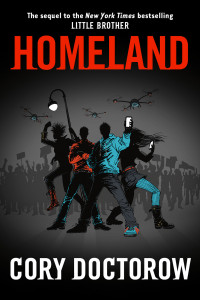
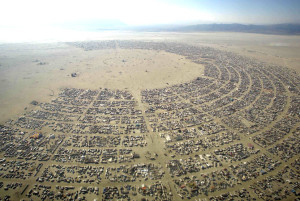


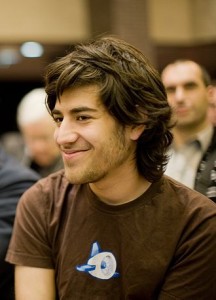
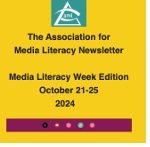
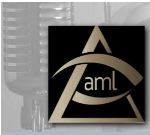
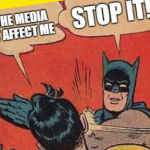
[…] Homeland Study Guide [Neil Anderson/Association for Media Literacy] […]
[…] Anderson from the Association from Media Literacy has produced an excellent study guide for my novel Homeland (the sequel to Little Brother) — Anderson's guide encourages critical […]
[…] from Media Literacy (which has a great-sounding upcoming conference) has produced an excellent study guide for my novel Homeland (the sequel to Little Brother) — Anderson’s guide encourages […]